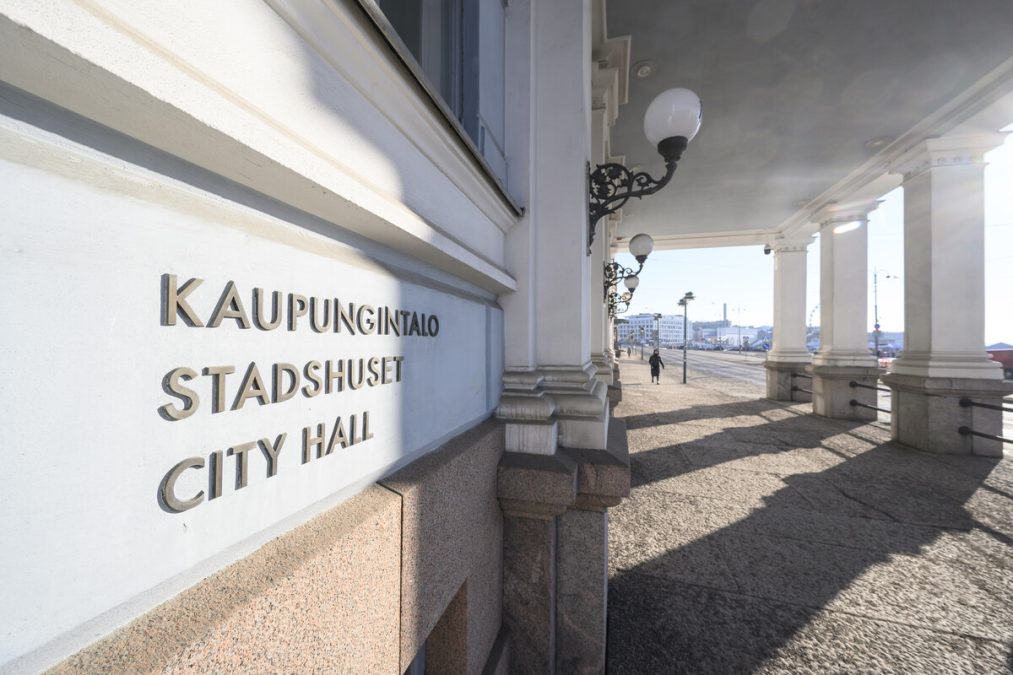Audit Committee: Lessons to be learnt from the commissioning of Sarastia HR and payroll administration system
The City of Helsinki failed in the commissioning of the Sarastia system in several different areas, according to the assessment report for 2022 of the Audit Committee. The procurement was prepared on a fast schedule, the preparation period for the commissioning of Sarastia was too short, the system was received unfinished, and the testing and user training of the system were insufficient. The situation deteriorated further due to the inaccurate conversion data transferred to the system. According to the Audit Committee, there were deficiencies in management, operating models, competence and the system performance.

The Audit Committee is an institution under the City Council, the duty of which is to assess to what extent the objectives set by the City Council have been met. Photo: Sakari Röyskö Not enough focus was placed on the implementation and management of the change when commissioning Sarastia. The project did not initially have a manager who would have had the responsibility and resources to ensure the successful implementation of the entire project. The city failed at both external and internal communications. For example, communication with personnel and the City Council was seen as inadequate. The payroll errors have hampered the everyday life of the City employees, harmed the City’s reputation and resulted in significant extra costs. The Audit Committee’s assessment report presents recommendations for the allocation of clear management responsibility, investment in change management, communications, and development of HR and financial administration processes.
Early-stage mental health services have been developed in recent years, but access to treatment remains difficult
The City has implemented several measures in accordance with its strategy in order to facilitate access to early-stage mental health services for young people and adults. For example, employees have been trained to support the well-being of both students and adults, training has been given related to mental health matters, and student welfare personnel have been increased in educational institutions. The low-threshold Mieppi mental health operations have been increased, and methods such as short-term therapy and guided self-care have been deployed. The mental health services’ service chain for children and young people has been developed, as well as the separate path for adults, but the gradation of care has still not been achieved. According to the Audit Committee, the gradation of care should be introduced soon, while clearly defining the responsible parties of the services as well as how mental health patients move through the treatment chain. It should also be ensured that the treatment chain, the gradation of care and guidance are familiar to both the personnel and the clients.
The evaluations related to students of upper secondary education and the early-stage mental health services of adults also observed that student healthcare services and health stations also provide support to clients with more severe symptoms, whose problems may deteriorate further as access to further treatment is so difficult.
The Audit Committee considers that the City Council should be able to set targets for its major subsidiaries
Since the 2022 budget, the City Council has no longer set objectives for the City organisation’s subsidiaries. In practice, the decision-making power for setting goals has been given to the City Board. In the Audit Committee’s view, the most notable subsidiaries should have objectives that are reported to the City Council. In their 2022 summary, the City’s auditor also stated that setting objectives for at least the most significant subsidiaries should be part of the budgetary procedure approved by the Council annually to ensure that the City Council’s budgetary authority is realised. Examples of the notable subsidiaries are Helen Oy and Port of Helsinki Ltd. The Audit Committee also commented on the fact that no ownership strategy was determined for the City’s most significant subsidiary, Helen Oy, until 2023, although the company started its operations on 1 January 2015.
Successful experiences in land use planning of the inclusion of residents and the preservation of green areas
The evaluations of the Audit Committee discovered that the residents have more extensive opportunities to participate in detailed planning than legally required, and green areas and valuable natural sites are usually preserved in residential land use plans, if possible. However, as land use planning also promotes housing production targets, housing is also allocated to green areas in some cases.
Assessment report for Council consideration on 21 June
The Audit Committee is an institution under the City Council, the duty of which is to assess to what extent the objectives set by the City Council have been met. You can explore the topics above in more detail as well as the other subjects considered by the Audit Committee in the assessment report for 2022 on the website arviointikertomus.fi/en .
The City Council will process the assessment report at its meeting on 21 June 2023. In the same connection, the statements by the City Board and Division Committees regarding the observations of the assessment report will be processed.
Read more
- Assessment report for 2022
- The Audit Committee
- Audit Department
- The implementation of Sarastia, the human resources and payroll system
- Promoting the well-being of upper secondary school students
- Access to early-stage mental health services for adults
- Targets set for the Group
- The impact of residential planning on green spaces
- Resident participation in land-use planning
- The statements by the City Board and Division Committees regarding the observations of the assessment report